We'll call it in the air: 2015 is going to end up being a great year for music. The albums that have impressed us the most over the year's first six months are a varied lot. There's enormous ambition on display here, epic works crafted to bust boundaries or reshape at will (check out that three-hour debut album), but also intensity in small gestures: a pair of devastating albums about loss, two more anchored in the sounds of sisterly harmonies. As we reach the year's mid-point, take a moment to listen with us, ears wide open to a great six months of music. Let's hope the second half of 2015 lives up to it.
Advisory: Some of the songs on this page contain profanity.

ALABAMA SHAKES
Sound & Color
On its second album, this Athens, Ala. band — now chart-toppers, late-nite TV veterans, large-font festival draws — sounds less like a historically-accurate pedestal for propping up Brittany Howard's monumental rock-soul-blues voice than a demolition crew with a work order to knock down some pedestals. Where the Shakes' debut, Boys & Girls, bopped along on the energy generated by its musicians locking into perfect step, Sound & Color sees each band member stretching out. Bassist Zac Cockrell and drummer Steve Johnson might be the album's secret weapons, switching tempos and clearing space for the emotive guitar playing of Heath Fogg. Howard coos and sighs as often as she howls, hanging in the background for long stretches, yet still comes across as someone who doesn't have to tell you twice to step aside. Like its predecessor, you can dance to all the songs on Sound & Color, but it's an angrier, druggier, cooler, freakier kind of dancing. --Jacob Ganz

BJÖRK
Vulnicura
There's nothing easy or joyous about Vulnicura. Björk's break-up album is full of pain and betrayal. Its electronic beats won't let you dance, the strings are heavy, there's not a singable chorus and the words are wounds documenting an almost anthropological timeline of love lost. And with all that, Vulnicura is worth its weight. It's a universal album for all of us who have tangled in love. There's never been a record quite like this; alongside all the hurt, there's still healing to be had and to be heard. --Bob Boilen

BOMBA ESTEREO
Amanecer
Bomba Estereo has cemented itself as a band that is able to produce fun, danceable music that is also deeply rooted in tradition. The Colombian band's sound is as much an exploration of Latin America's indigenous and African roots as it is a stroll through the noisiest neighborhoods of Bogota. With its latest album, the band goes beyond just being incredibly fun and energetic — it dives further into a spiritual, reflective feel. Amanecer is intimate in a way the previous Bomba Estereo albums are not, like hanging out at an after-party with someone you always suspected you could fall in love with. The crowning gem is the song "Mar (Lo Que Siento)," a reflective, airy piece that feels like drifting away on a beach after a night of dancing. --Jasmine Garsd

BOSTON MODERN ORCHESTRA PROJECT
Play (Andrew Norman)
Just how good is Andrew Norman's Play? It might just be the best piece of large-scale orchestral music so far in the 21st century. Scored for full orchestra plus piano and extra percussion, Play is a rigorously constructed, wildly rambunctious beast in the spirit of older works like Olivier Messiaen's Turangalila Symphony and new ones like Thomas Adès' Tevot. From the opening seconds, Norman, a Californian in his mid-30s, sets up a symphonic thrill ride. Through its three levels (not unlike a video game), Play unleashes spasms of melody and whiplash transitions, but also unveils landscapes of serene beauty. Late in the piece, he carefully builds an extraordinary crescendo, topped with a sweet oboe line soaring over an orchestra that twitches and roils. Play is a staggering achievement, built with wit and wonder. Yet for all its flamboyance — made all the more brilliant in a brave, exacting performance from Gil Rose's Boston Modern Orchestra Project — the piece, like most great art, is a fascinating journey, one you'll want to take again and again. --Tom Huizenga
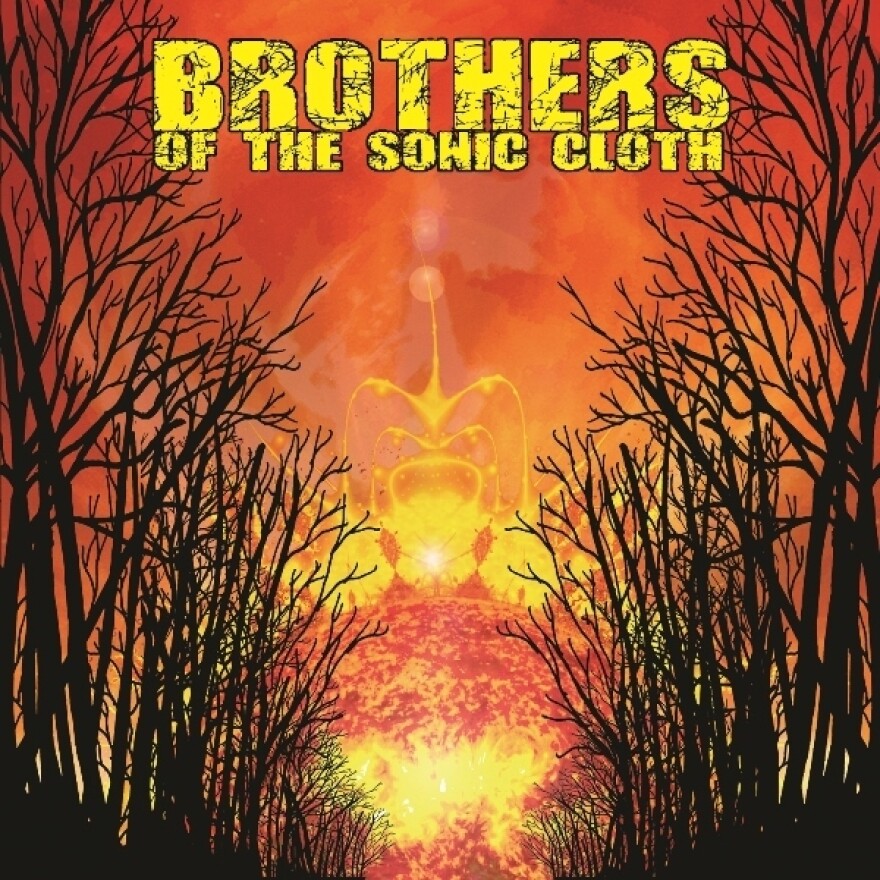
BROTHERS OF THE SONIC CLOTH
Brothers of the Sonic Cloth
Seattle's Tad Doyle has been at this heavy game coming on three decades now. With bands like TAD and Hog Molly, he could take a bummer riff and make it boil and hum in ways others just couldn't. Years in the making, Brothers of the Sonic Cloth's debut is a thoroughly satisfying doom metal LP that is fully awake and teeming with power. --Lars Gotrich

CHRIS STAPLETON
Traveller
Here's the truth: Music critics are so buried in new releases that some — including those that rank in a given year's Top 10 — might only get a few impassioned spins before being retired to make room for a new deluge. But a select few become the soft denim jackets in a music lover's listening closet, pulled out time after time, lending comfort, suiting every occasion, with treasure stuffed in every pocket. This exquisite debut album by one of Nashville's great all-around talents is that kind of satisfying. It rocks hard; it doles out heartache; it's funny and profound; it showcases a stunning voice and celebrates the camaraderie of a fine band. It's a keeper in the deepest sense. --Ann Powers

COURTNEY BARNETT
Sometimes I Sit And Think, And Sometimes I Just Sit
I've been wanting this record since I saw Courtney Barnett three times in 2013 and heard her two EPs (repackaged together last year). Unlike those EPs, Barnett recorded her debut album with her touring band, and what's most striking is this Australian trio's ability to make rock and roll feel vital and not played out. Chalk some of that up to the fact that this band of bass, drums and Courtney on guitar are truly great players, but they also bolster some of the best words rock has ever had. Take this example from "Dead Fox," a song about the repercussions of industrial agriculture:
Barring some bolt of musical lightning before year's end, this debut album from Courtney Barnett will be my number one record of the year. --Bob Boilen

D'ANGELO AND THE VANGUARD
Black Messiah
Technically it's a 2014 album (it dropped without much advance warning mid December) but cut us some slack: Black Messiah's singles really started making waves in 2015 and D'Angelo has been killing it on tour this spring. You shouldn't hold Mr. Michael Archer to a fixed calendar anyways: After a 14-year hibernation, he pulled a rabbit trick by gifting us a tricky, sexy, modern classic that seemingly synthesizes the entirety of analog-era avant-garde soul — Hendrix, Sly, Clinton, Prince, Shuggie and more. He also brings the gentle bossa-like feel of "Really Love" and those Monk-ish changes on "Sugah Daddy." Remember the old adage that if you're late enough you'll be on time again: The experimental sonics of Black Messiah — with its barely intelligible lyrics and impressive analog mix by Russ Elevado — somehow manage to capture the muffled anger and simmering agitation that increasingly defines black life in the age of Ferguson, Baltimore and Charleston. The creeping, almost resigned weariness of tunes like "Charade" suggests both the everyday melancholy and profound resilience of people darker than blue facing a violent, supremacist culture. As did Charles Burnett's Killer of Sheep or Bill Gunn's Ganja & Hess for film in their respective moments, Black Messiah sublimates some of the feeling of 21st century black life in recorded musical form. It's inspiration information, indeed. --Jason King

DJ SOTOFETT
Drippin' For A Tripp
A sprawling, varied LP From the Sex Tags Mania boss DJ Sotofett, Drippin' For A Tripp blends sparkling new age with ambient house and West African melodies. The Norwegian DJ's left-field dance label has a reputation for oddball charm, so it makes sense that his debut LP strikes a chord between warm and weird. Made with six different artists over a two year period, the record's reggae, batucada and dub influences hang neatly between sinewy synths and flashes of psychedelia. Watch out for "Nondo," where Maimouna Haugen's intro vocal lulls the senses before housey drums and trippy pings perk them back up. --Sami Yenigun
Drippin' For A Tripp is only available in physical formats. Buy it from Forced Exposure or Honest Jon's.

DONNIE TRUMPET & THE SOCIAL EXPERIMENT
Surf
For the last time: This is NOT a Chance The Rapper album. Not to say that a Chance album wouldn't be nice, but Surf is a welcome digression in the much-hyped Chicago MC's career. And although Chance is its vocalist, the group is fronted by, as its name suggests, Donnie Trumpet, a.k.a. Nico Segal. On Surf, the band takes pleasure in sidestepping categorizations, not with a defiant snarl but rather a cheerful smile. It's a feel good album in the "turn up!" era: an amalgam of jazz, poetry, neo-soul and hip-hop with an effervescent pop appeal that just happens to feature great live instrumentation and unexpected guest shots from artists as disparate as Erykah Badu and Quavo. Who knew happy didn't have to be hokey? --Timmhotep Aku

GIRLPOOL
Before The World Was Big
As Girlpool, Harmony Trividad and Cleo Tucker have distilled the equipment necessary for a direct link between ear canal and heartstrings down to two members, two instruments, one cassette, one EP and one full-length album. That album, Before The World Was Big, is a lo-fi collection of punk songs that have a playful spirit but aren't playing around. Trividad and Tucker specialize in no-frills singing and simple instrumentation that cut through bone and aim for marrow. The title track, in particular, features vocal harmonies that are almost startling in their poignancy and impact, bringing life to lyrics about memory and the loss of things remembered. Girlpool's lack of polish does nothing to diminish its shine, and its free-spirited approach to punk only adds to the power behind their punch. --Katie Presley
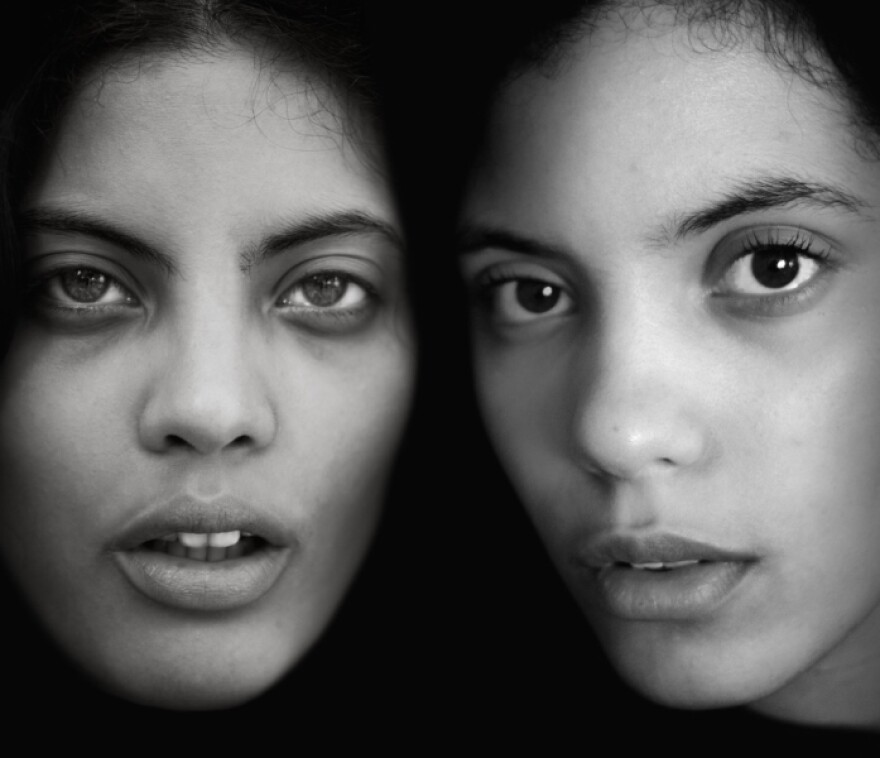
IBEYI
Ibeyi
There are a lot of things to admire about the self-titled debut from Ibeyi — an accomplishment considering that there simply aren't a lot of things in it. It's made by a band of twin sisters: One sings and plays piano; the other sings backup and makes beats. The textures are often minimal, the assembly spare. Of course, there's more behind that, namely two musical parents who raised them in France and Cuba and around Afro-Cuban religious culture. So their foray into the production-and-voice duo model is sung in both English and Yoruba (and a little French), with electronics that employ traditional cajón and batá drums toward hip-hop ideas. It's very much a summons to the ghosts of their history, whether in direct incantations to Santería deities or in its dedication to their father and elder sister, who both died prematurely. And there's the way their voices hang, overlap, chant in unison, linger as a chorus; Ibeyi may be only two people, but there are more presences in the room. -- Patrick Jarenwattananon
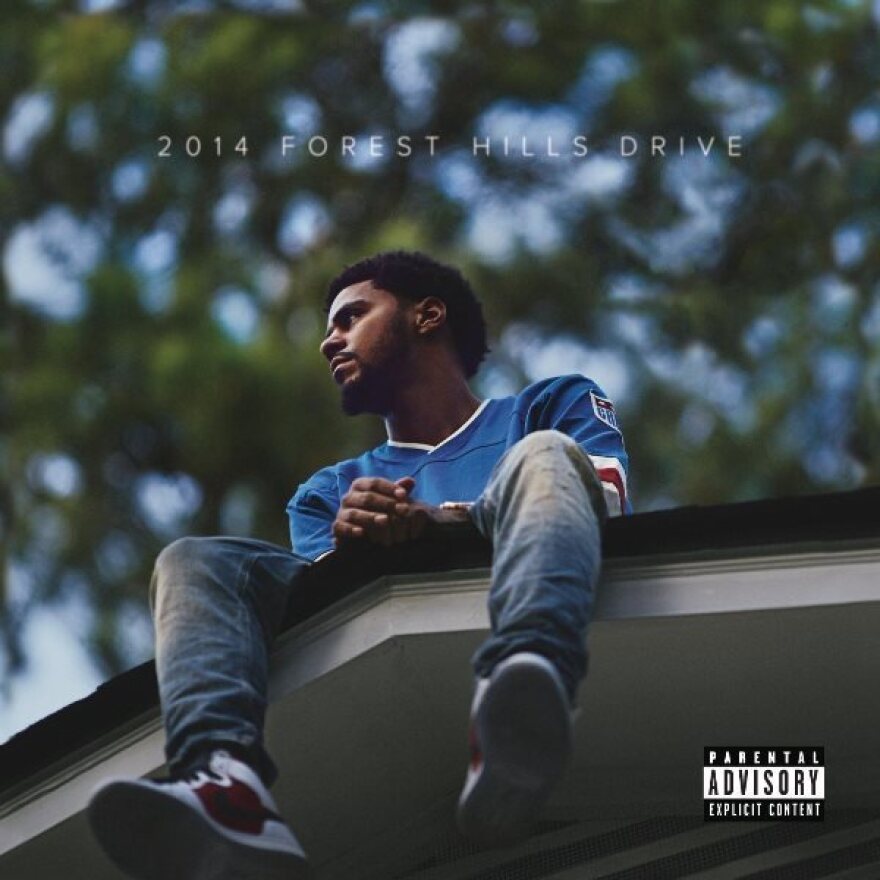
J. COLE
2014 Forest Hills Drive
Can everyone just give Jermaine Cole his props already? With this album, Cole, ever the underdog, has proven that he's not only come into his own artistically but also that he deserves to be mentioned in the same breath as hip-hop's current elite. A surprise release in December of last year, 2014 Forest Hills Drive makes our 2015 list because: A) it was released after we published our 2014 albums list and B) although it dropped during the holiday season it stayed in rotation well into the new year. Chalk it up to Cole's now-perfected formula of breaking up his bravado with moments of introspection and brutal honesty. Musically we heard him explore melody as he never had before, singing from his soul as much as he rapped his little heart out. Largely self-produced and featuring no one but background vocalists, it proves he can carry an album on his own, without the aide of his Roc Nation benefactor Jay Z or a big name producer — a feat in itself. So again, can J. Cole finally get his just due? --Timmhotep Aku

JAZMINE SULLIVAN
Reality Show
In 2011, as one of R&B's strongest voices, Jazmine Sullivan announced via Twitter that she was taking a self-imposed hiatus from singing: "i promised myself when it wasn't fun anymore i wouldn't do it. and here i am [sic]," she wrote. Fast-forward four years, and she's finally back — with a hell of a concept in front of her. On Reality Show, Sullivan interprets the imaginary life of your present-day reality TV star by flirting with just about every approach possible. She never lets us get the least bit comfortable: she effortlessly transitions from flawless a capella runs ("Forever Don't Last") to full-fledged visions of sensual clarity ("Veins"). The somewhat unsettling "Mascara" juxtaposes fleshed-out, meaningful production and Sullivan's fully alive voice with lyrics that grate against everything we believe in: "Most people think I'm shallow 'cause I'm always dressed like I'm going out to the club / But I gotta keep up cause it's new chicks poppin' up everyday and they want the same thing." Whichever direction she flows, Sullivan gently reminds us with each turn that she's capable of taking anything on — with no problem. --Kiana Fitzgerald
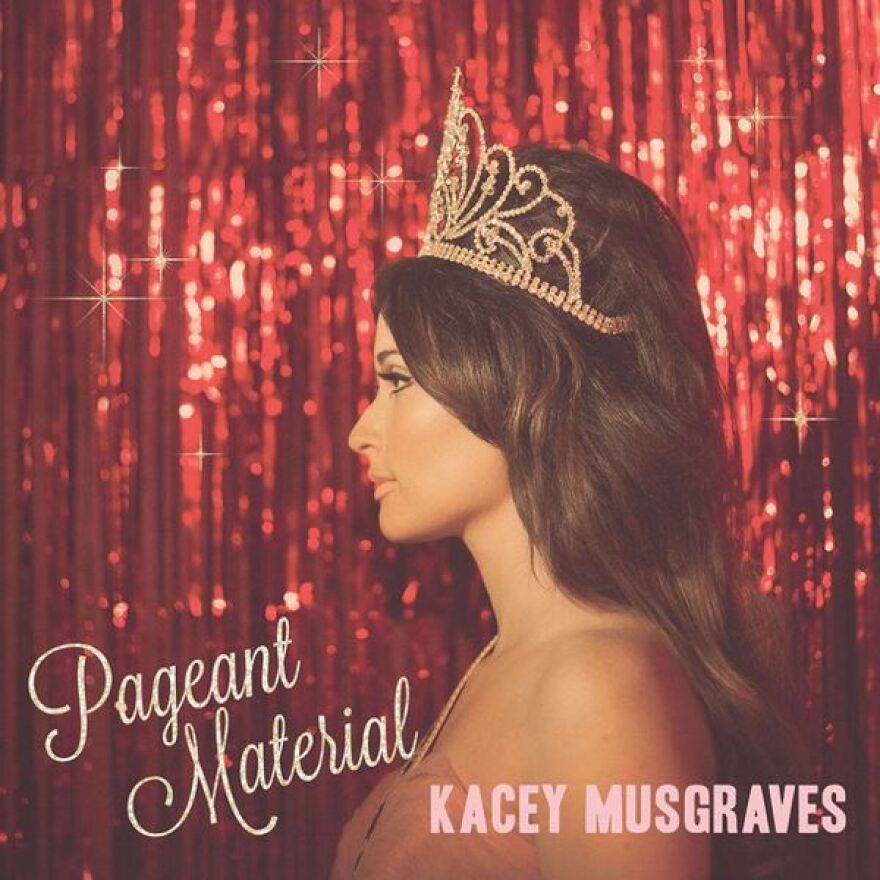
KACEY MUSGRAVES
Pageant Material
Kacey Musgraves' 2013 debut, Same Trailer Different Park, mixed go-your-own-way anthems with heartbreaking songs about lives set adrift by circumstance, tradition and old habits. For the most part, Pageant Material doubles down on the anthems at the expense of the heartbreak: It's largely a collection of mission statements about minding your own business, being yourself despite outside pressures, trusting your family warts and all, and making the most of what we're given while we're around to enjoy it. But those mission statements — again written by Musgraves, again with ace assists from a small team that includes Brandy Clark and Shane McAnally — are quotably, often poignantly irresistible. "Dime Store Cowgirl," for example, may tread familiar thematic ground in the way it paints Musgraves as a country star who's remained unchanged by the trappings of fame. But the song, like so much of what surrounds it on Pageant Material, is a gorgeously shimmering, almost impossibly infectious charmer. --Stephen Thompson
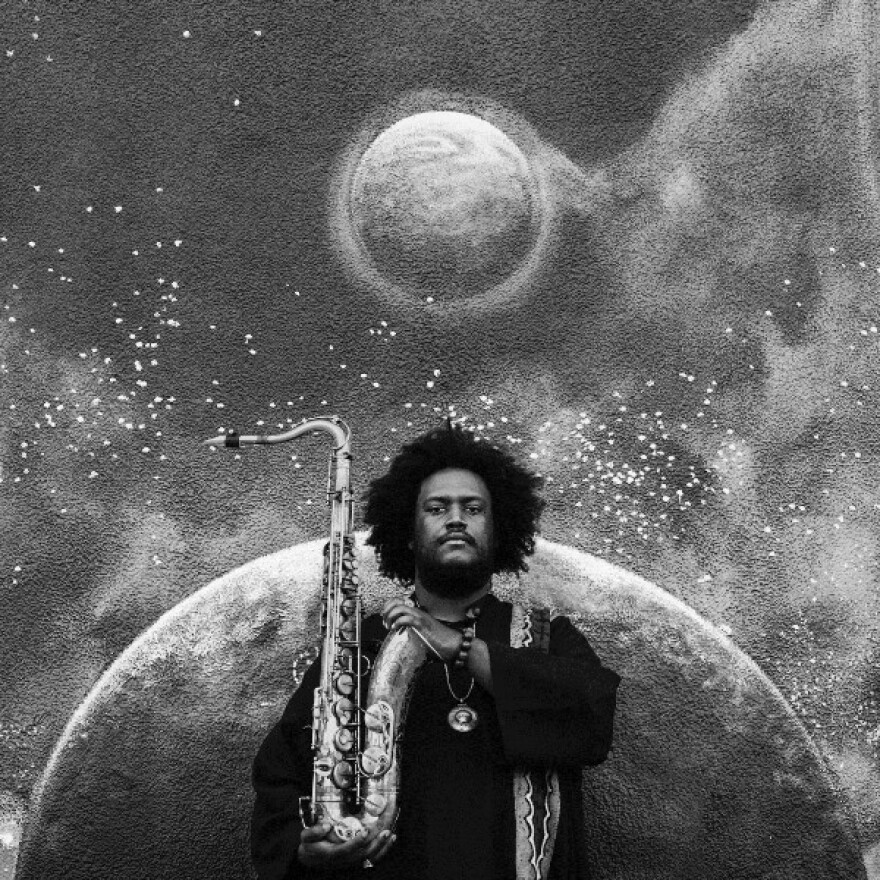
KAMASI WASHINGTON
The Epic
It's not that this record sounds, in any specific regional identity sort of way, like Los Angeles. If anything, it sounds like dislocation and amalgam: like '70s modal swing, like Donald Byrd's A New Perspective meets Charlie Parker With Strings, like the last half century of black popular music. But L.A. is integral to its existence. It's where saxophonist and composer Kamasi Washington, now 34, met his bandmates in high school or before. It's where they found various gigs with pop stars, set up residencies in clubs that would have them, lived in actual houses where they can jam and pooled their money to book a recording studio for a month. The first fruit from that collective undertaking is overkill: 17 songs, nearly three hours, horns, a double rhythm section, strings, vocal chorus. It's gloriously so, an imposing collection that first overwhelms with volume and energy and ecstatic solos and reveals its depth of color and hummable melodies as you begin to process it. It's proof that you can both go big and go home. --Patrick Jarenwattananon
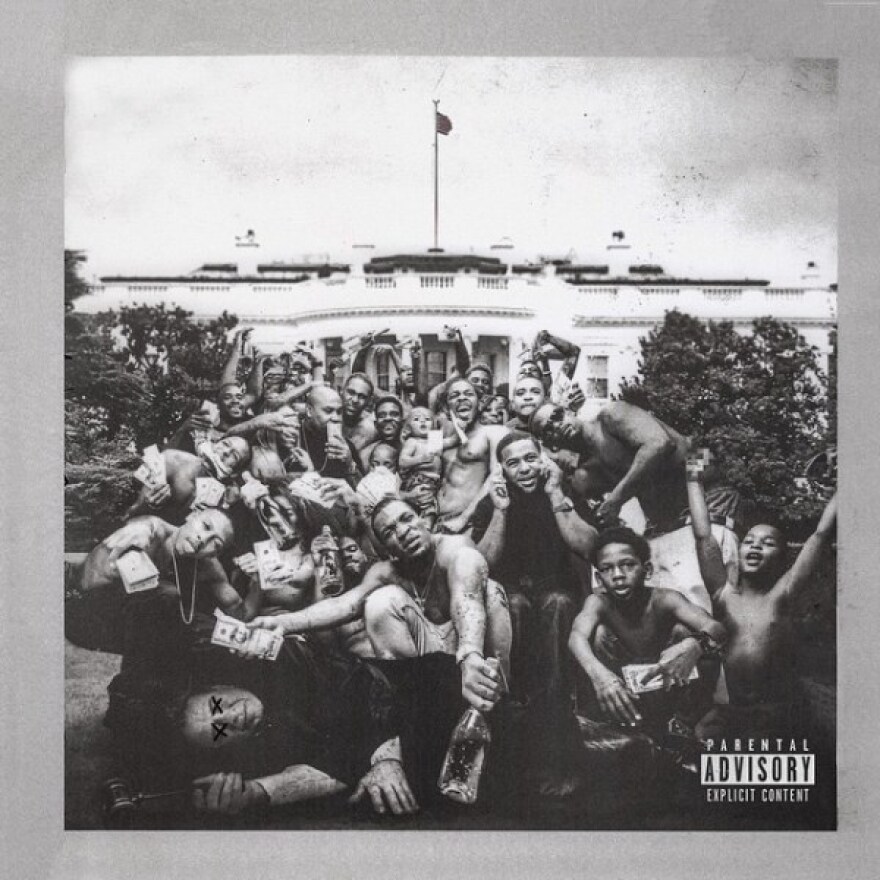
KENDRICK LAMAR
To Pimp A Butterfly
Last year he got labeled a sell-out due to his support for Australian hip-popper Iggy Azalea and for making a seemingly conservative remark about Mike Brown's shooting in a Billboard story. This year he made a surprising, possibly jarring, cameo in fan Taylor Swift's "Bad Blood" mega-video. So this we know: Kendrick Lamar isn't chasing traditional street cred and he may not always be down for the righteous cause. Loving him is complicated. But not unlike social media loose cannon Kanye West, Lamar knows how to filter his manic ideas and channel his range of feeling into a cohesive album as artistic statement. To Pimp a Butterfly's scalding mix of neo-soul, jazz, electronica, sampled soul, sound effects and spoken word interludes — to say nothing of Lamar's diverse constellation of vocal personas and his wicked ability to warp his own flow on demand — makes this album far more outré, and self-consciously bizarre, than his 2012 throwback cinematic Good Kid M.A.A.D City. It's a sprawling, chaotic structure of feeling in the form of 16 album tracks. The list of collaborators here, from George Clinton to Robert Glasper to Thundercat, and even the faux staged interview with Tupac, helps deliver the goods; but it is Lamar's profound insistence on self-empowerment in the context of his own scars and trauma that really wows. Top tracks include "i," coasting on its instantly-recognizable Isley Brothers' sample, and the marauding black masculinity screed "King Kunta." There are no easy, simple answers in To Pimp a Butterfly; in working through its unapologetic mania, maybe you'll discover your own truths. --Jason King
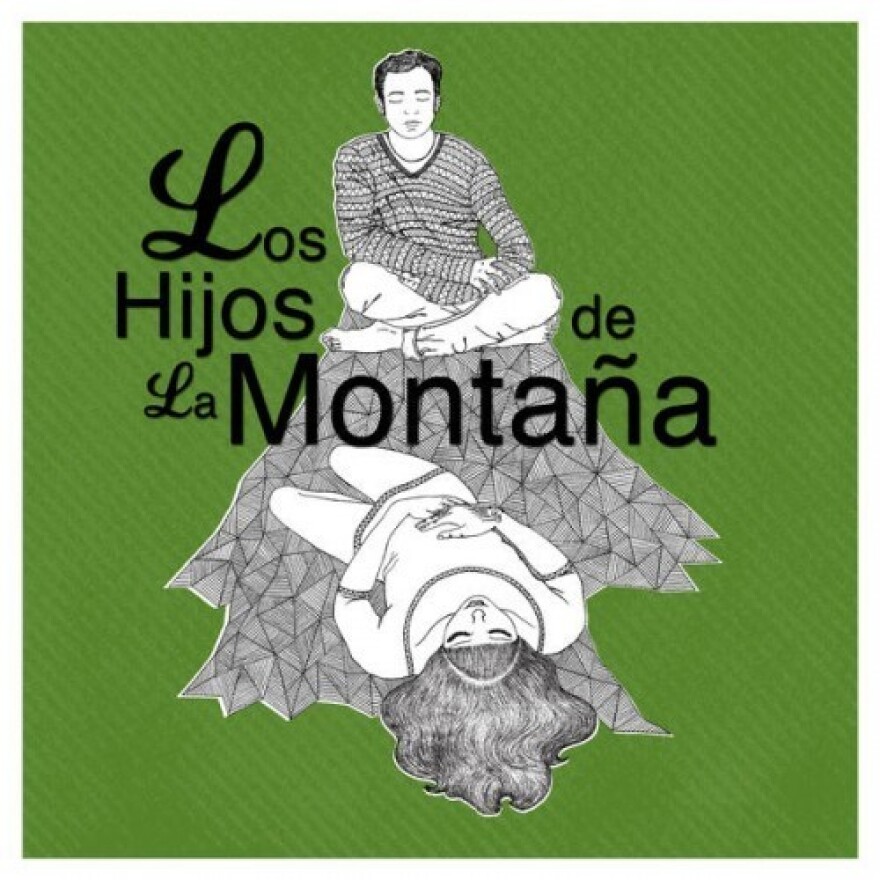
LOS HIJOS DE LA MONTAÑA
Los Hijos de la Montaña
I've been calling it "The Meeting of the Mendozas," this first-ever collaboration between songwriter Sergio Mendoza and vocalist Luz Elena Mendoza. The two (unrelated) musicians represent two very unique takes on Mexican influences in their music: Luz Elena is the husky-voiced lead singer of Y la Bamba, a group from the Pacific Northwest that I once described as a group of "rugged choir boys"; Sergio has divided his time between Calexico and his own Orkesta Mendoza, a 1950s-inspired mambo rock band. Together these Mendozas sound nothing like their separate bands: Los Hijos de la Montaña is a captivating sonic soundscape of a mythical Southwest, a land where the border doesn't exist and the musical flow is bilingual and bi-cultural. It hasn't caused much of a stir in the crowded world of online music, but this album is worth a second and even third listen six months into this year. There is a well-crafted and expertly-performed world in this music that is very real to many of us who grew up in the Southwest. This collaboration nails the sound in our heads perfectly. --Felix Contreras

MBONGWANA STAR
From Kinshasa
The original title for this album was "From Kinshasa to the Moon," and that sounds just about right — this commingling of Congolese street music and electronic sounds is at once earthy and totally futuristic. Anchored by two veterans of the DRC's Staff Benda Bilili (Yakala "Coco" Ngambali and Nsituvuidi "Theo" Nzonzawho) who teamed up with Paris-based Irish producer Liam Farrell, Mbongwana Star lives true to its name: "mbongwana" means "transformation" in the Lingala language. From the album's first single, the hyper-metallic "Malukayi" (featuring Konono Nº1), to the sweat-drenched Congolese rumba of "Shégué" and the dance floor thrust of "Nganshé," you hear the band's metamorphic power throttling straight into the fringes of the great beyond. --Anastasia Tsioulcas

RHIANNON GIDDENS
Tomorrow Is My Turn
The first thought that takes over during a listen to Rhiannon Giddens' solo debut is: This woman can sing anything. Country, art song, R&B, old-timey sounds in the style of her old band Carolina Chocolate Drops, the songbooks of Dolly Parton and Nina Simone: check. Stop marveling for a moment and this impeccably constructed, hotly executed collection reveals the brain and soul that feed the extraordinary voice. Giddens and producer T-Bone Burnett recast the American songbook with women at the center. Giddens' deeply personal interpretations of songs made famous by Patsy Cline, the mezzo- soprano Florence Quivar, Elizabeth Cotten, Odetta and others strip away the tired truisms smothering our understanding of musical history. In the hands of this young master, stories that seemed beyond refreshing shine, renewed. --Ann Powers

SEATTLE SYMPHONY
Dvořák, Symphony No. 9; Varèse, Amériques
This album is an irresistible musical pairing of two sketches of the United States. The first is Dvorak's famous and lush paean to the "new" Native and African-American sounds he heard in America, which has become one of the most popular symphonies ever. The other is Edgard Varèse's crackling, clangorous Ameriques — far less well-known, but riveting and necessary. Perhaps even more important than the repertoire are the performances. This recording bursts with terrific playing — listen to that tremendous brass! Those urgent, razor-sharp strings! And it serves as proof of the Seattle Symphony's triumphant claim, under the leadership of Ludovic Morlot, as one of the truly great American orchestras. Beautifully engineered, too. --Anastasia Tsioulcas

SUFJAN STEVENS
Carrie & Lowell
A decade after his coming-out party as indie's gentlest superhero, it was starting to feel reasonable to wonder whether Sufjan Stevens' feet might ever touch the ground again. From Illinois to The Age of Adz via The BQE, Stevens built an ornate, dense collection of epic songs that was awe-inspiring but not always welcoming. On Carrie & Lowell, Stevens dials things back to a whisper to reckon with the 2012 death of his mother. If it sounds like a "classic" Sufjan album on the surface, it conceals its mastery of subtle changes only lightly, all the ambition of his previous albums on the head of a pin. A deep pool of familial regret and pain in "Should Have Known Better" ripples with hope and acceptance. The gentle propulsion of "Drawn To The Blood" gives way to ambient shimmer. The most immediately "Sufjan-like" song on the album, "Eugene," begins with lines about lemon yogurt and the "hysterical" light in the Oregon town of the title. It sounds like it could be the set-up for a new entry in his long-abandoned 50 States project, but turns despondent: "What's the point of singing songs if they'll never even hear you?" Stevens sings before the song abruptly ends. "We're all gonna die," he repeats later. And then, "F*** me, I'm falling apart." By the album's end, he's lost and alone, but take a breath and put the album on again and you'll hear him forgive his mother in the opening song. Healing doesn't follow a straight line; neither does art. --Jacob Ganz

TORRES
Sprinter
Sprinter is the sound of an artist at the moment her vision snaps into startling focus. Mackenzie Scott had showed promise before; her early work as Torres exuded moody cool and unsettling atmosphere. Sprinter, though, is something else, and it's apparent within its opening minute. "Strange Hellos" opens with a strained whisper through clenched teeth, and by the time 60 seconds have passed, the song has accelerated into something approaching a full roar — it's confident and scary and mysterious and crowd-pleasing all at once. From there, the ideas keep pouring out, as Scott explores crises of faith and identity with equal parts aggression and grace. PJ Harvey is as fine a reference point as any, but Sprinter also plays around with quieter atmospheres in songs that storm, seethe and surprise. --Stephen Thompson

VIJAY IYER TRIO
Break Stuff
To say Vijay Iyer has expanded the boundaries of jazz has become old hat. For my money he has accomplished the same kind of innovation and forward thinking that Miles Davis used to brag about. There are some of the usual trappings: a jazz trio; larger big bands full of saxophones and brass; quirky, angular compositions that echo the best of the most challenging jazz. But what Iyer brings to every group context and performance is the kind of wandering spirit that us jazz fans cherish but rarely encounter. Plenty of musicians experiment and even dip into the screech and howl of the avant-garde but so precious few ever master the jazz tradition enough to be able abandon it and carve out a place for their own. Break Stuff is but another chorus in the continuing song that is the life and music of Vijay Iyer. I have no doubt the next album as will be as good as his last. So for now, I spend time with his current album and marvel at how he does it. --Felix Contreras

WILLIAM BASINSKI
Cascade
A master of tape loop manipulation, composer William Basinski is known best for his mournful, mysterious, five-hour-long recording The Disintegration Loops. Fifteen years ago, while digitizing fragile reels of tape, he discovered a transitory beauty as they literally crumbled in the tape deck, but found new life as digital files. Now again, Basinski has rescued old tapes to create Cascade, another mesmerizing ambient landscape. "I agonized over these and almost threw them in the trash," he wrote in a promotional email. Cascade appears to be built from a single fragile piano riff, drenched in reverb, slightly overmodulated and looped for nearly 40 minutes. But as usual with this most subtle composer, there's much below Cascade's shimmering surface. Instead of stasis, a slight tug of current floats you down a rippling streamlet. The music emerges from nowhere, shifts almost imperceptibly, then quietly recedes. Why it packs as much emotional punch as it does is a mystery best left unanswered. Cascade, aside from its dark beauty and quiet power, is a vindication for all packrats — proof that having second thoughts about what to trash and what to save can be a glorious thing. --Tom Huizenga
Copyright 2023 NPR. To see more, visit https://www.npr.org.


